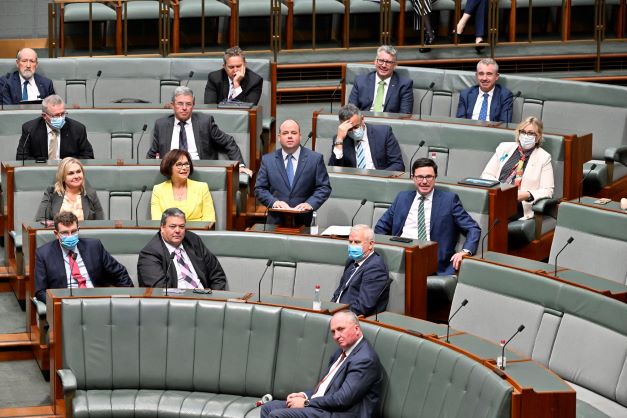What does 'I move that the member be no longer heard' mean?
Under the Standing Orders – rules – of the House of Representatives, a member of parliament can move a motion – a formal proposal – that the member who is speaking ‘be no longer heard’. This means the member must stop speaking. Members then vote on this motion. If the motion is passed, the member who was speaking must immediately resume their seat. The motion only applies to the speech which is currently in progress.
The Senate does not have a similar procedure to ‘gag’ or stop a senator from speaking. However, under the Standing Orders of the Senate, the President of the Senate can warn a senator about irrelevance or tedious repetition and direct them to discontinue their speech. The senator can either choose to follow the President’s direction or ask that the question be decided on by a vote of the Senate. Since time limits on speeches were introduced, this has rarely occurred.
A member of the opposition speaking in the House of Representatives.

DPS Auspic
Description
A member of the House of Representatives makes a speech in the House. They are standing amongst members of their party. They are sitting in the seats on the left side of the House of Representatives where the opposition sit. The opposition is the largest party or coalition of parties that does not have the support of the majority of members in the House of Representatives.
Permission should be sought from DPS AUSPIC for third-party or commercial uses of this image. To contact DPS AUSPIC email: auspic@aph.gov.au or phone: 02 6277 3342.